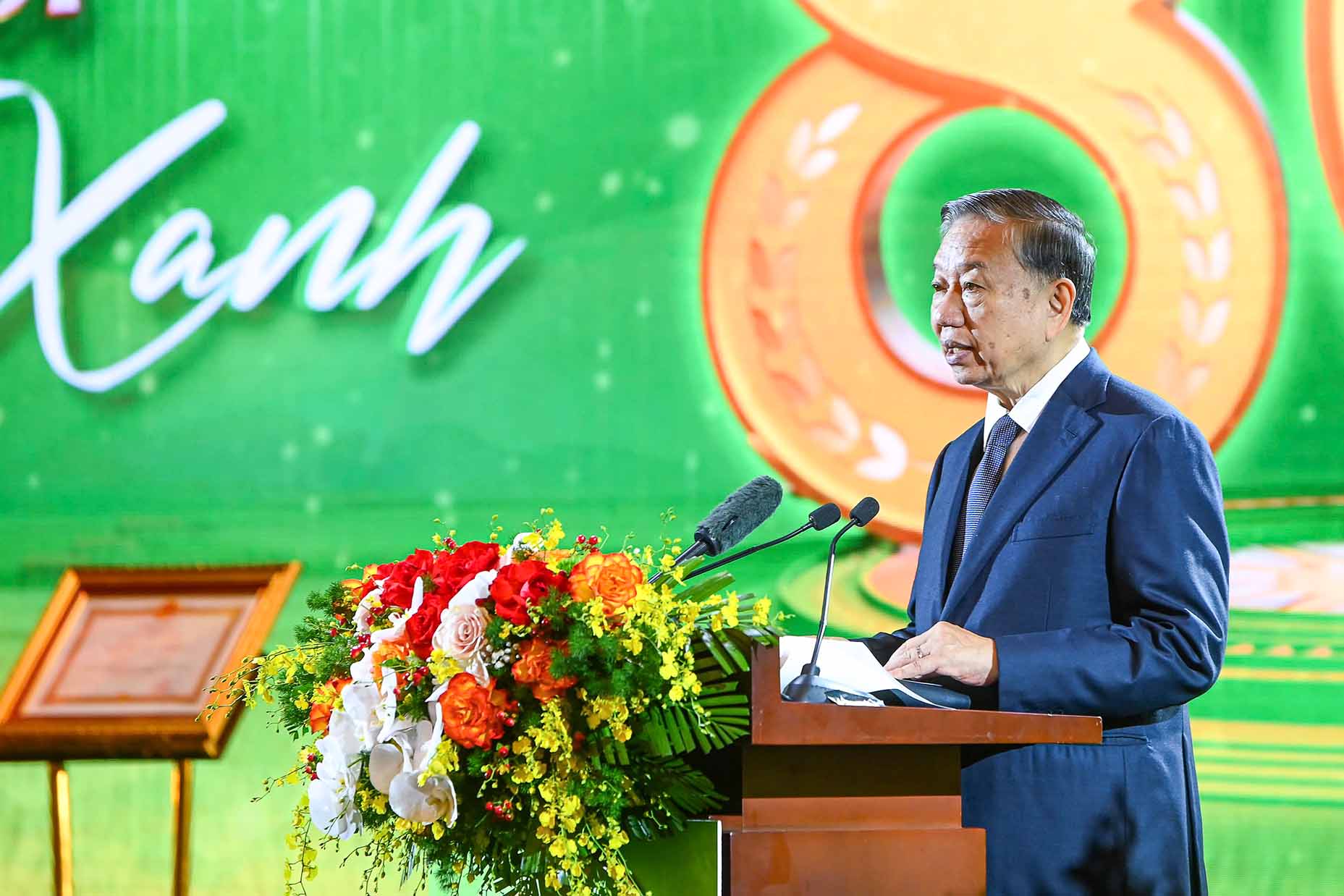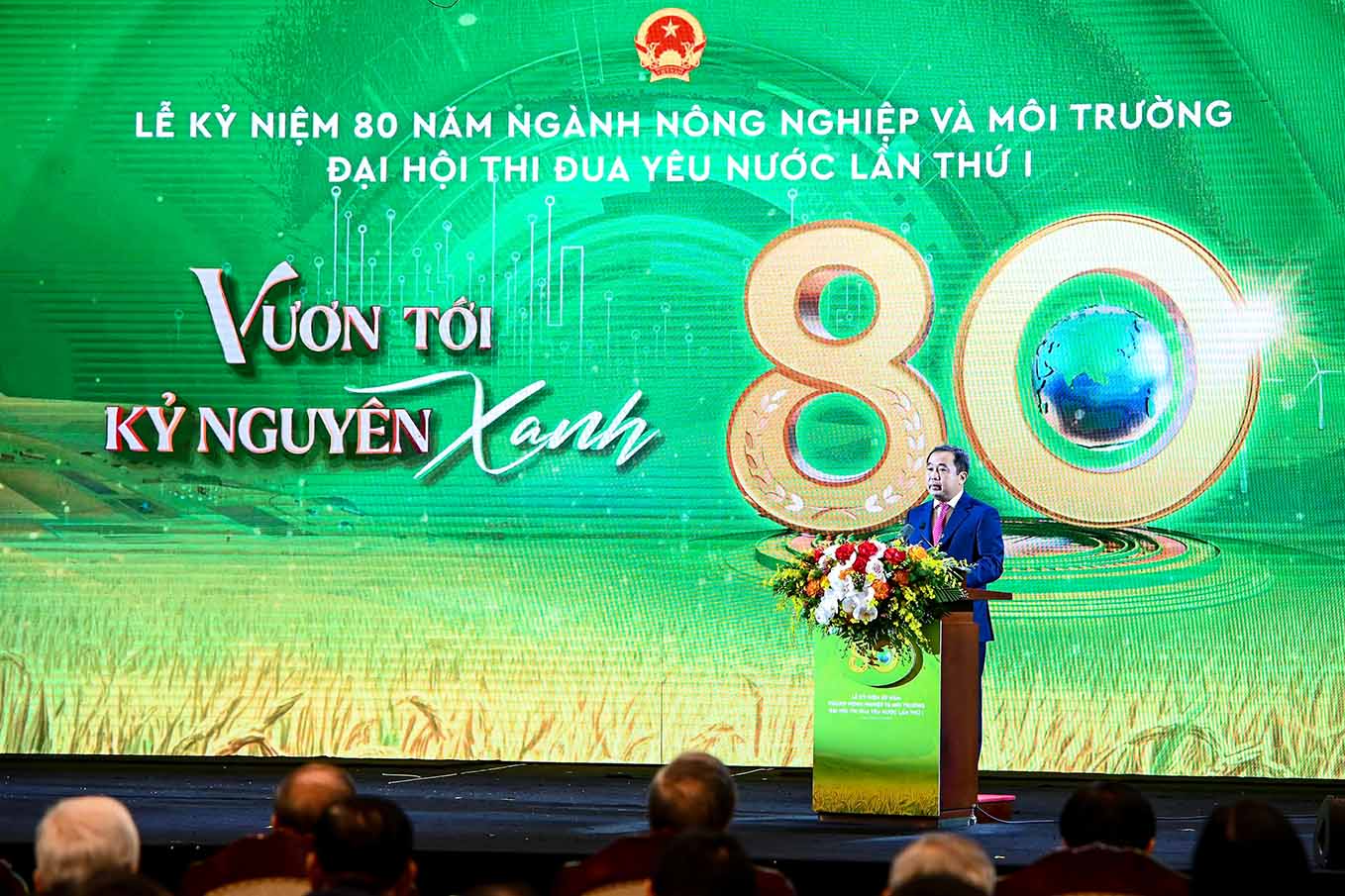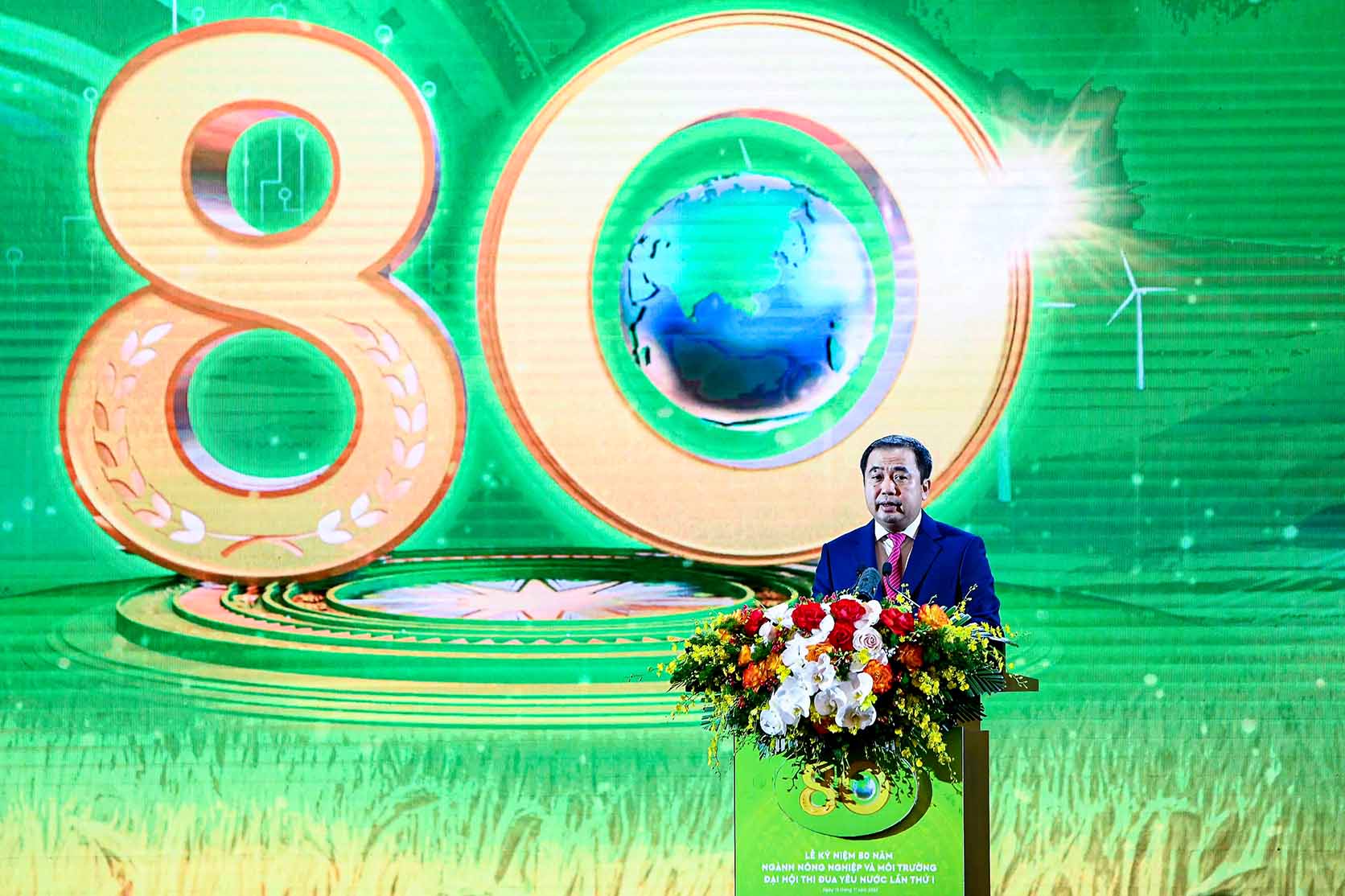On the morning of November 12, at the 80th Anniversary of the Agriculture and Environment Sector and the 1st Patriotic Emulation Congress held in Hanoi, Mr. Pham Huy Giang - Head of the Central Emulation and Reward Committee (Ministry of Home Affairs) - announced the President's decision to award the First Class Labor Medal to the Ministry of Agriculture and Environment.
On behalf of the Party and State leaders, respectfully awarding the First Class Labor Medal to the Ministry of Agriculture and Environment, General Secretary To Lam praised and affirmed that over the past 80 years, the Agriculture and Environment sector has accompanied the nation, becoming a pillar of the economy, the foundation of livelihoods and now become an important factor in the development and transformation of the country in the new era of development.
In addition, the General Secretary also pointed out that in reality, the agricultural and environmental sector is facing many difficulties and challenges, large and complex, intertwined between economic development, resource management and environmental protection, which requires a strategic vision, stronger and more drastic actions in the new period.

The General Secretary suggested that the entire Department of Agriculture and Environment continue to innovate thinking, act more decisively and effectively, and make worthy contributions to the success of the 14th National Party Congress and the prosperous and sustainable development of the country.
In particular, it is necessary to speed up the summary and full institutionalization of the Party's policies on agriculture, farmers, and rural areas; resource management, environmental protection, and climate change response in the legal system.
At the ceremony, Minister of Agriculture and Environment Tran Duc Thang emphasized that over the past three decades, the export value of agricultural, forestry and fishery products of Vietnam has increased nearly 50 times, putting our country in the top 15 largest agricultural exporters in the world.


The National Target Program on New Rural Development has fundamentally changed the face of Vietnamese rural areas. More than 78% of communes meet standards, infrastructure has improved significantly, people's lives have improved, and the poverty rate has decreased sharply.
That is a clear demonstration of the effectiveness of agricultural, farmer and rural development policies, Minister Tran Duc Thang affirmed.
Looking back at 80 years of the industry's history, the minister assessed that this was a difficult but extremely glorious journey. Since the war, Vietnamese farmers have been "plowing and gun-phosing" contributing to the miracle of "the rice is not lacking in one scale, the army is not lacking in one person".
After 1975, the agricultural sector quickly restored production, promoted irrigation, exploitation, and afforestation, stabilizing people's lives.
Entering the renovation process in 1986, the agricultural sector has had remarkable development steps. Breakthrough policies, such as the Land Law 1993), along with crop and livestock restructuring programs, application of science and technology, and construction of new rural areas, have opened a period of comprehensive development.
According to Minister Tran Duc Thang, products such as rice, coffee, cashews, pepper, seafood, and fruits have been in the group of 5 leading exporting countries in the world for many consecutive years, bringing tens of billions of USD each year.
To date, the multidimensional poverty rate has decreased from 58% in 1993 to 4.06% in 2024; the forest coverage rate remains above 42%; Vietnam ranks 54/166 countries in sustainable development, second in ASEAN. This is a testament to the combination of economic growth and environmental protection, not exchanging the environment for development.
Entering a new development phase, Minister Tran Duc Thang emphasized that the entire sector is facing major challenges such as climate change, green transformation, food security and resources.
In that context, the consistent goal is to develop ecological agriculture, modern countryside, civilized farmers, associated with environmental protection and climate change adaptation.
The industry will focus on 5 key groups of tasks, including: Completing institutions; developing a green - circular economy, sustainable resource management; promoting digital technology - AI in agriculture; and improving governance effectiveness, mobilizing resources for green transformation.
Each cadre, civil servant, and worker must turn pride into a specific action, and aspiration into a strength to contribute, said the minister.











